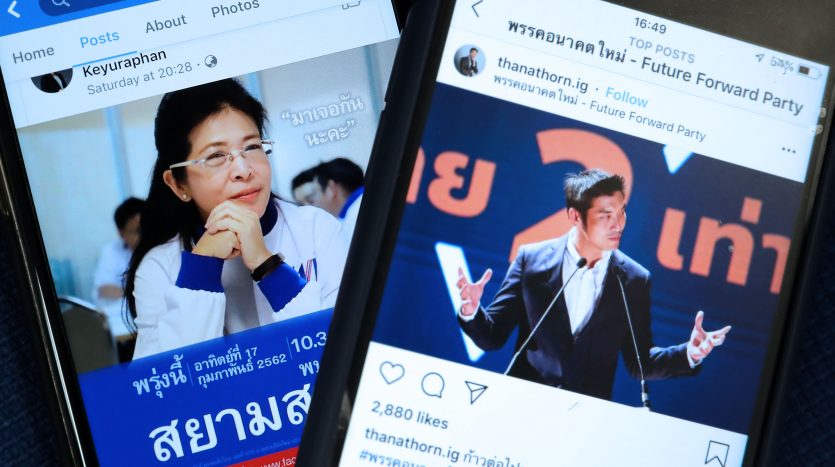For the first time since the last general election five years ago, Thailand is witnessing the fast-growing power of social media platforms, especially among young voters, indicating the polls expected in March this year will be significantly influenced by Line, Facebook, Twitter and other non-traditional media.
More than half of the population of Southeast Asia including Thailand is under the age of 30. Therefore, it stands to reason that this segment of the population will have an out sized influence in coming political contests.
Candidates across the region have their eyes turned toward capturing young votes, and that mission is having an affect on their platforms, and the way they campaign.
In Thailand early research shows that election participation among young people in Thailand could be impressive this year. A survey of first-time voters carried out by Bangkok University found that 78.6 percent of the respondents said they would vote in the general election and 85.8 percent said they were monitoring political developments on social media.
While social media certainly isn’t just the domain of the young, this election will likely take on a distinctly digital tone, more so than any Thai election before, giving young digital natives a different perspective on their nation’s politics.
Thailand’s 2019 elections will be the first time votes will be counted for a national contest in eight years. The world has changed a lot in that time, making this is Thailand’s first full-on social media election.
The last time Thailand held a national election, in 2011, internet penetration in Thailand was less than one third, Twitter had a niche user base, had 10 million users, but no political party or individual candidate had yet to gain 1 million likes.
Compared to today, the social media of 2011 looks quaint. According to a report by Hootsuite and We Are Social, in 2019, there were 57 million internet users in Thailand, making internet penetration 82 percent. Active social media users make up 74 percent of the population.
Thailand now has more than 46 million Facebook users. While General Prayut Cha-o-cha enjoys less support on the platform (his Facebook page has 502,000 likes), the page of former Prime Minister Yingluck Shinawatra has 6 million likes.
Thailand’s new Future Forward party is rapidly emerging as an unexpected wild-card in the country’s long-awaited general election, and could prove pivotal in the formation of the next government, Nikkei reports.
Formed only in March of last year by businessman Thanathorn Juangrongruangkit, the party has drawn vast support from the country’s young by presenting itself as an alternative choice for anti-junta voters.
With huge numbers set to enter the electorate for the first time, this new force in Thai politics could play a crucial role in the outcome on March 24.
Future Forward was backed by 7.5% of respondents in a nationwide opinion poll run by the Bangkok Post on Feb. 12 and 13. That fell below the 9.3% garnered by Pheu Thai, a party linked to exiled former leader Thaksin Shinawatra, but above the pro-junta Palang Pracharat Party’s 7.0%.
When asked for a favorite prime ministerial candidate, however, just 6.6% endorsed Thanathorn, compared with 12% who picked junta leader Prayuth Chan-ocha and 8.1% opting for Pheu Thai’s Sudarat Keyuraphan.
Source: ANN, Nikkei Asian Review, Chiangrai Times







 WhatsApp us
WhatsApp us